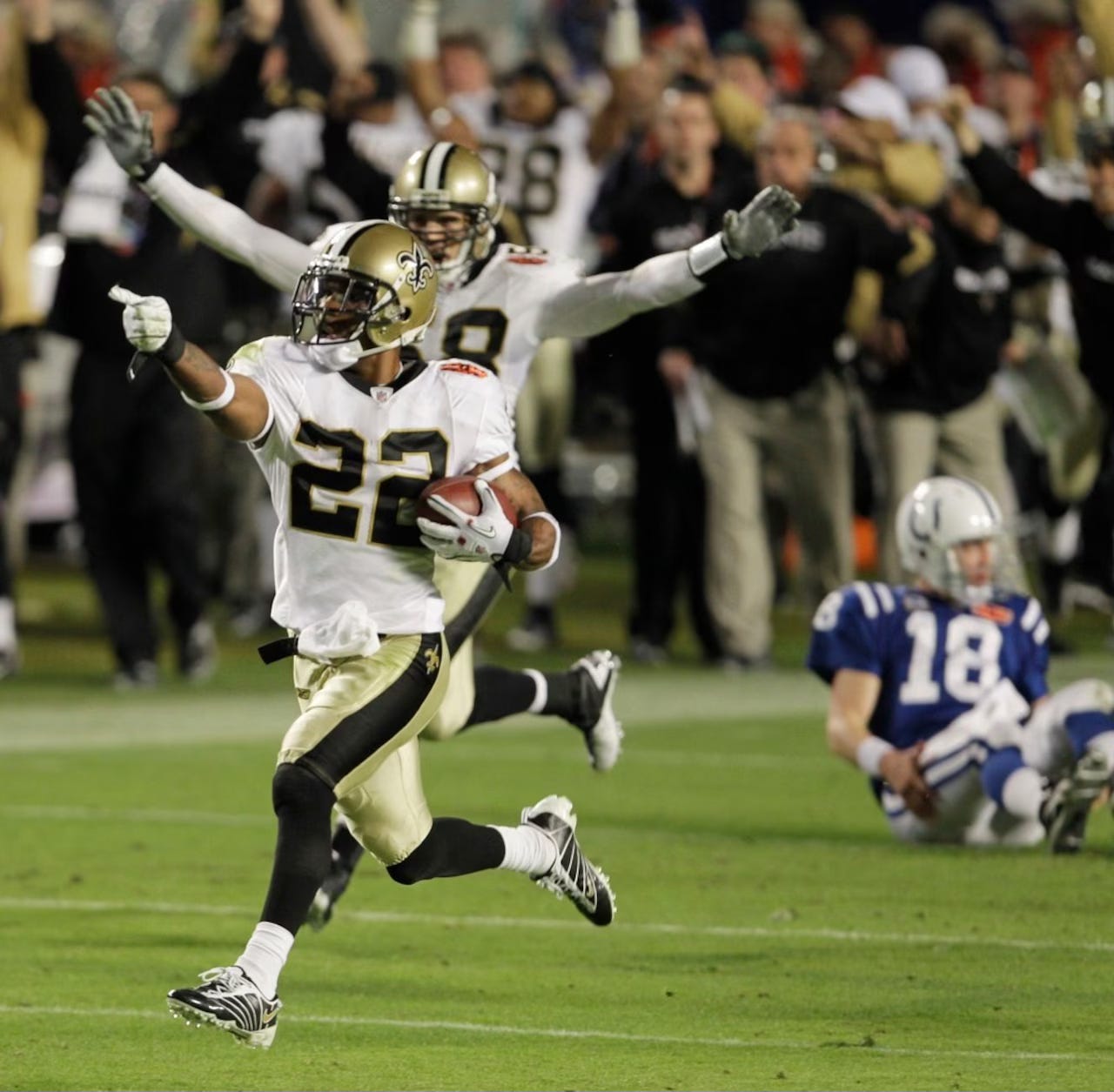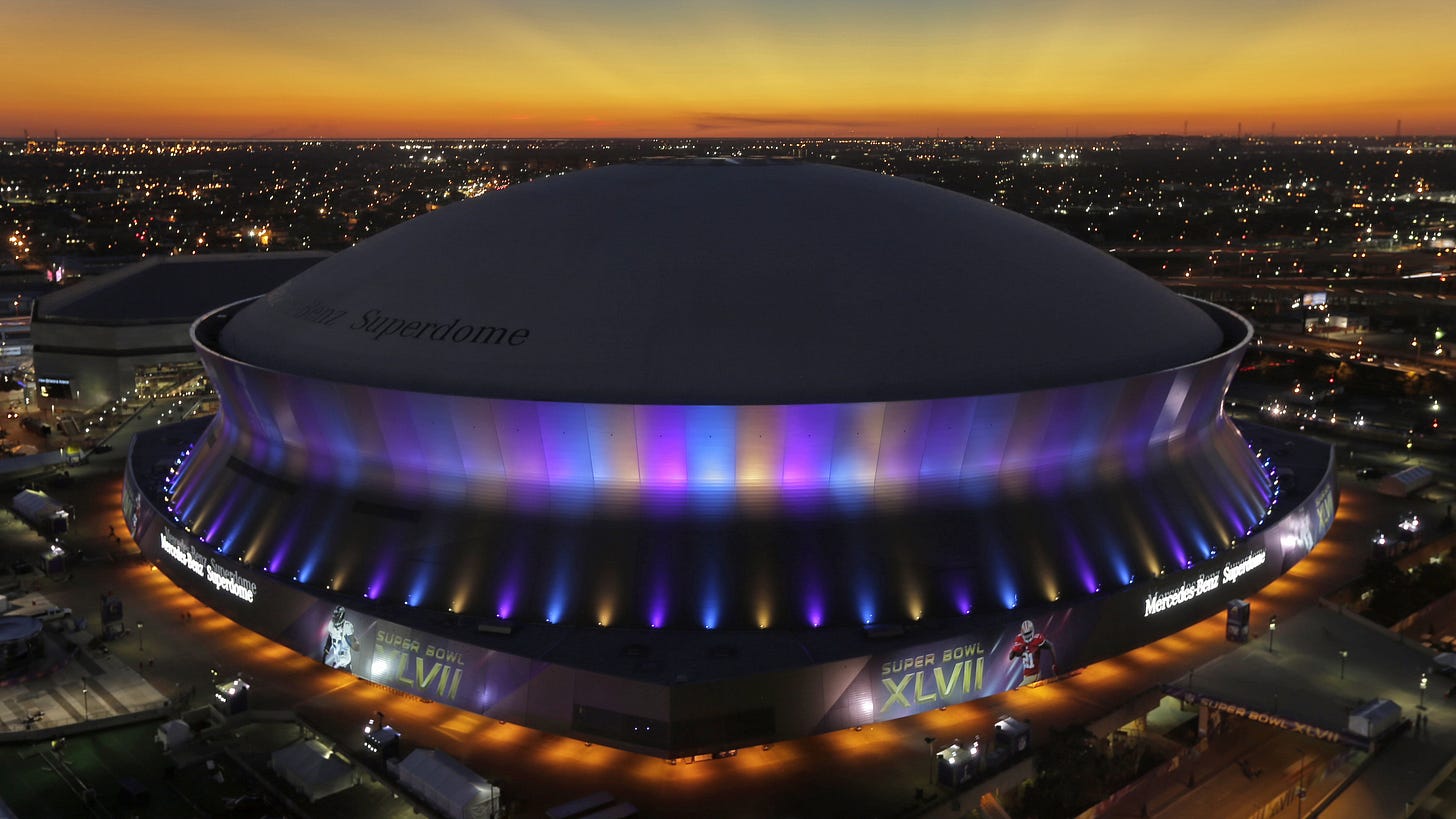The New Orleans Saints’ Super Bowl Victory and Its Impact
On February 7, 2010, the New Orleans Saints etched their names into NFL history with a 31-17 victory over the Indianapolis Colts in Super Bowl XLIV. The win was far more than a sports milestone—it was a symbolic triumph for the city of New Orleans. In the wake of Hurricane Katrina’s devastation just a few years earlier, the Saints’ victory brought hope, unity, and pride to a community that had endured so much.
Super Bowl XLIV was not just a championship game; it was the culmination of a remarkable story of perseverance, rebuilding, and belief.
The Journey to Super Bowl XLIV
The Saints’ Struggles Before Success
Founded in 1967, the New Orleans Saints spent much of their early history as a struggling franchise. Decades of losing seasons and limited playoff success earned the team the unfortunate nickname “The Aints.” Fans remained loyal, but expectations were often low.
Everything changed in 2006. After Hurricane Katrina devastated the city and displaced the team, the Saints began to rebuild alongside their home. The hiring of head coach Sean Payton and the signing of quarterback Drew Brees became defining moments that would change the organization’s trajectory.
Hurricane Katrina and the Saints’ Role in Recovery
Hurricane Katrina’s impact on New Orleans in August 2005 was catastrophic. The Superdome, home to the Saints, became a refuge for thousands of displaced residents, a symbol of both despair and survival. As the city slowly recovered, so did its football team.
The Saints returned to the renovated Superdome in 2006, and in their first home game, they defeated the Atlanta Falcons in a moment now considered legendary. The blocked punt and the roar of the Superdome that night were early signs that the Saints would come to represent more than just football to the people of New Orleans.
The Rise of Payton, Brees, and the 2009 Saints
Under Payton’s leadership and Brees’ brilliance, the Saints evolved into a powerhouse. The 2009 season marked a turning point as the team finished with a 13-3 record and clinched the NFC Championship with a dramatic overtime win against the Minnesota Vikings.
The Saints entered Super Bowl XLIV as underdogs against Peyton Manning and the Indianapolis Colts, but confidence among players and fans was unwavering.
The Historic Super Bowl Victory
The Game: Key Moments That Made History
Super Bowl XLIV featured moments that have become NFL lore. After trailing 10-6 at halftime, the Saints began the second half with a bold onside kick—called “Ambush”—that caught the Colts off guard and shifted momentum.
Drew Brees led a masterful performance, completing 32 of 39 passes for 288 yards and two touchdowns, earning him Super Bowl MVP honors. The game’s defining play came late in the fourth quarter when cornerback Tracy Porter intercepted Peyton Manning and returned it 74 yards for a touchdown, sealing the Saints’ 31-17 victory.
The Superdome might have been miles away, but New Orleans celebrated as if the game had been played in their backyard.
The Celebration Across New Orleans
The streets of New Orleans became a sea of black and gold that night. Fans flooded the French Quarter, shouting the Saints’ battle cry, “Who Dat say they gonna beat dem Saints?” The victory was about more than football—it symbolized the city’s ability to persevere and triumph after years of hardship.
The iconic image of Drew Brees holding his infant son, Baylen, amidst falling confetti captured the spirit of the moment: a city and team celebrating a brighter future.
The Impact of the Victory on New Orleans
A Symbol of Resilience and Unity
The Saints’ victory was a rallying point for New Orleans. The team became a symbol of resilience for a city still recovering from the trauma of Hurricane Katrina. The win brought together residents from all walks of life, creating a shared sense of pride and unity.
Football fans and non-fans alike embraced the moment as a sign that New Orleans was on its way back.
Economic and Cultural Impact
The economic impact of the Saints’ Super Bowl run was significant. Local businesses saw a surge in sales as fans celebrated. Tourism also increased, with people eager to experience the energy and spirit of post-Katrina New Orleans.
Culturally, the victory further solidified the Saints as an integral part of New Orleans’ identity. The “Who Dat Nation” grew beyond Louisiana, and the black and gold became symbols of the city’s strength.
The Superdome’s Transformation
Perhaps no single structure represents New Orleans’ journey better than the Superdome. Once a shelter of last resort during Katrina, the Superdome was reborn as a proud fortress of victory. Its transformation mirrored the city’s own story of renewal and hope.
The Saints’ Legacy Post-Super Bowl
Continued Success on the Field
The Saints’ Super Bowl win marked the beginning of a new era for the franchise. Under Sean Payton and Drew Brees, the team remained a perennial contender, delivering years of thrilling performances.
Inspiration for Small-Market Teams
The Saints’ victory demonstrated that small-market teams could compete and win on the biggest stage. It was a blueprint for success built on leadership, strategy, and an unwavering connection to the community.
A Lasting Impact on New Orleans
The significance of the Saints’ Super Bowl victory cannot be overstated. For New Orleans, it wasn’t just a win for a football team—it was a triumph for an entire city. The Saints became more than athletes; they became symbols of what was possible when a community believes in itself.
Conclusion
The New Orleans Saints’ victory in Super Bowl XLIV remains one of the most meaningful moments in sports history. It was a testament to the resilience of a team, a city, and its people.
The chants of “Who Dat” still echo in the hearts of Saints fans, reminding us all of what can be achieved when hope, determination, and unity come together. In a moment of triumph, the Saints gave New Orleans the ultimate gift: a reason to celebrate, a reason to believe, and a reason to dream.









